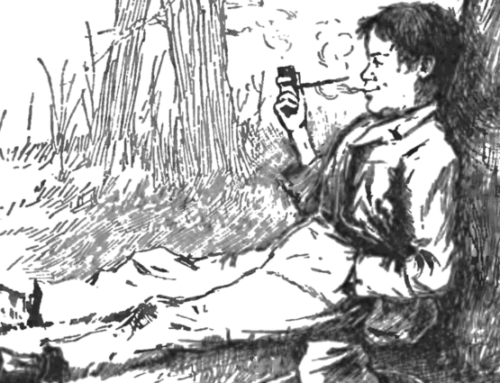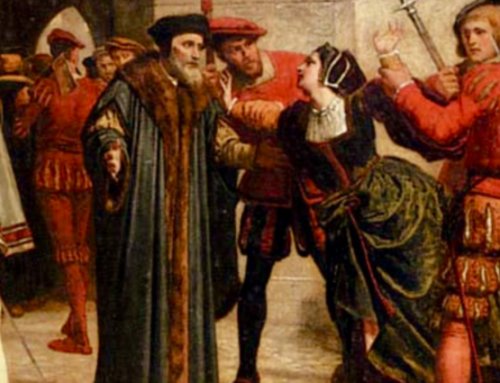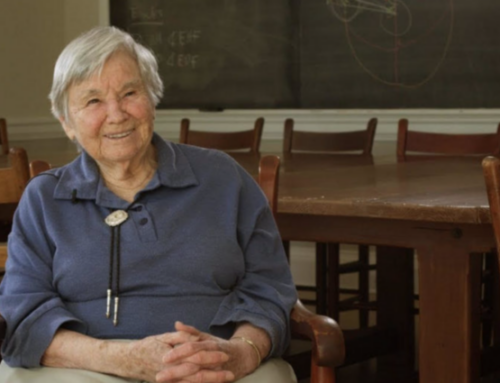 The art of war… as it is certainly the noblest of all arts, so in the progress of improvement it necessarily becomes one of the most complicated among them. The state of the mechanical, as well as of some other arts, with which it is necessarily connected, determines the degree of perfection to which it is capable of being carried at any particular time. But in order to carry it to this degree of perfection, it is necessary that it should become the sole or principal occupation of a particular class of citizens, and the division of labour is as necessary for the improvement of this, as of every other art. Into other arts the division of labour is naturally introduced by the prudence of individuals, who find that they promote their private interest better by confining themselves to a particular trade than by exercising a great number. But it is the wisdom of the state only which can render the trade of a soldier a particular trade separate and distinct from all others. A private citizen who, in time of profound peace, and without any particular encouragement from the public, should spend the greater part of his time in military exercises, might, no doubt, both improve himself very much in them, and amuse himself very well; but he certainly would not promote his own interest. It is the wisdom of the state only which can render it for his interest to give up the greater part of his time to this peculiar occupation: and states have not always had this wisdom, even when their circumstances had become such that the preservation of their existence required that they should have it. —The Wealth of Nations
The art of war… as it is certainly the noblest of all arts, so in the progress of improvement it necessarily becomes one of the most complicated among them. The state of the mechanical, as well as of some other arts, with which it is necessarily connected, determines the degree of perfection to which it is capable of being carried at any particular time. But in order to carry it to this degree of perfection, it is necessary that it should become the sole or principal occupation of a particular class of citizens, and the division of labour is as necessary for the improvement of this, as of every other art. Into other arts the division of labour is naturally introduced by the prudence of individuals, who find that they promote their private interest better by confining themselves to a particular trade than by exercising a great number. But it is the wisdom of the state only which can render the trade of a soldier a particular trade separate and distinct from all others. A private citizen who, in time of profound peace, and without any particular encouragement from the public, should spend the greater part of his time in military exercises, might, no doubt, both improve himself very much in them, and amuse himself very well; but he certainly would not promote his own interest. It is the wisdom of the state only which can render it for his interest to give up the greater part of his time to this peculiar occupation: and states have not always had this wisdom, even when their circumstances had become such that the preservation of their existence required that they should have it. —The Wealth of Nations
The Imaginative Conservative applies the principle of appreciation to the discussion of culture and politics—we approach dialogue with magnanimity rather than with mere civility. Will you help us remain a refreshing oasis in the increasingly contentious arena of modern discourse? Please consider donating now.
We hope you will join us in The Imaginative Conservative community. The Imaginative Conservative is an on-line journal for those who seek the True, the Good and the Beautiful. We address culture, liberal learning, politics, political economy, literature, the arts and the American Republic in the tradition of Russell Kirk, T.S. Eliot, Edmund Burke, Irving Babbitt, Wilhelm Roepke, Robert Nisbet, Richard Weaver, M.E. Bradford, Eric Voegelin, Christopher Dawson, Paul Elmer More and other leaders of Imaginative Conservatism. Some conservatives may look at the state of Western culture and the American Republic and see a huge dark cloud which seems ready to unleash a storm that may well wash away what we most treasure of our inherited ways. Others focus on the silver lining which may be found in the next generation of traditional conservatives who have been inspired by Dr. Kirk and his like. We hope that The Imaginative Conservative answers T.S. Eliot’s call to “redeem the time, redeem the dream.” The Imaginative Conservative offers to our families, our communities, and the Republic, a conservatism of hope, grace, charity, gratitude and prayer.
The featured image is “The Combat of Mars and Minerva” (1771) by Jacques-Louis David (1748–1825) and is in the public domain, courtesy of Wikimedia Commons. It has been brightened for clarity.







Leave A Comment